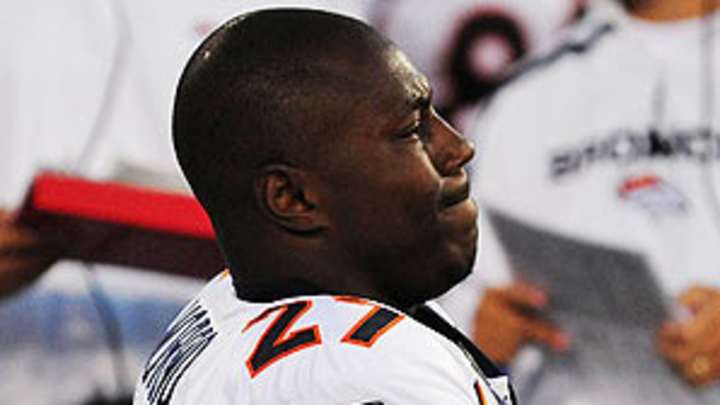Injuries shine light on need to shorten antiquated NFL preseason

Except for coaches, scouts and degenerate gamblers, it has become obvious the NFL preseason is little more than an artifact of bygone days. And this year, it has become painfully obvious to too many players and owners.
After just two full weeks of preseason games, 22 NFL teams already have at least one front-line player listed as out, doubtful or questionable for the start of the regular season. That does not include marquee players who are either being held back or hobbling through camp, like the Saints' Reggie Bush and the Eagles' Brian Westbrook.
Among the most notable players already out for the entire season, even before the first real snap is taken: Eagles linebacker Stewart Bradley, Panthers defensive tackle Maake Kemoeatu and Giants defensive tackle Jay Alford. Texans rookie Brian Cushing, the No. 10 pick overall, has yet to play in the preseason because of a knee injury. The Titans' big offseason acquisition, Nate Washington, will miss the remainder of the preseason with a leg injury. And No. 12 overall pick Knowshon Moreno's preseason lasted a total of three plays with Denver before he went down with a knee injury.
Yes, injuries always will be part of the game. But coaches and owners are becoming more concerned about the frequency and number of injuries hitting the league during the preseason -- even as teams lessen the amount of hitting.
Long-needed change to the preseason, shortening the schedule by at least one game and lengthening the regular season, clearly will be on the way the next time NFL owners address the issue. It's about time. Where once the preseason was vitally important for teams and a nice money-maker for owners, today it is unnecessary and a hazard. Players try to survive four games that hardly matter and withstand weeks of excessive preseason strain, often twice-daily, on already finely tuned bodies.
Playing four games of faux-football in today's NFL is about as necessary as players taking offseason jobs, like back when Tom Landry sold insurance, Lenny Moore was a radio jock and Art Donovan worked for a beer distributor. Players today arrive to camp in top form. Rookies spend months acclimating themselves to NFL regimens and playbooks through Organized Team Activities, mini-camps and "volunteer" team workouts.
Sure, there are intriguing preseason storylines, like Michael Vick and Brett Favre returning to the game. But as injuries mount and the value of two-a-day practices in 95-degree temperatures prove to be more of a silly tradition than a necessary evil, change must happen.
The biggest reason the league should and will push for a longer season and shorter preseason? Money, of course. When players lose games to preseason injury, many lose roster- and incentive-based bonuses. Sure, some might argue that replacing a game that does not matter with one that does could lead to more injuries, not less. Perhaps.
But in-season work weeks for NFL players are much less strenuous on the body than preseason two-a-days in stifling heat. And ask any NFL player if he'd rather risk injury in the regular season, when he could earn more acclaim, endorsements and bonuses, or in the preseason, when undrafted free agents are looking to chop-block anyone if it means a roster spot. Yeah, you know the answer.
The entire concept of playing four preseason games in this era, frankly, is ridiculous. Most veterans play a total of six or seven quarters of football during the preseason. For fans, it's boring and meaningless to pay regular-season prices to watch star talent standing on the sideline wearing ballcaps. The recent economic climate has only emphasized the point as local gate, parking and concession revenue has shrunk across the league.
But as little as front-line players see the field during the preseason, it's still too much. When you consider the millions of dollars invested in top NFL talent, the practice of tossing players into the dangerous grind of preseason games is like chopping prime rib into hamburger meat. Why? What's the purpose?
NFL commissioner Roger Goodell recently broached the subject of shortening the preseason and extending the regular season to either 17 or 18 games. The idea has been met with support from many owners, but at the NFL meetings in May, the issue never came to a vote.
The value to owners is obvious, with more regular-season games leading to increased revenue via TV and radio contracts, and gate revenue and season-ticket income. But the key component to making it happen would be making the schedule change equally as attractive and valuable to the NFL Players Association. It's not often the NFLPA concedes an issue to owners out of the goodness of their collective (bargaining agreement) hearts.
In this case, changing the preseason and regular-season schedules could help the two sides reach labor peace and avoid a potentially disastrous work stoppage in 2011.
The owners and NFLPA already are standing firm on key issues, namely the owners' desire to find more revenue streams and players' refusing to budge on things like retaining a 60-percent share of the revenue pie. Adding a 17th game conceivably gets both sides what they want -- money. The owners get theirs via more streams of cash flowing in. And players could get theirs by negotiating that with a longer season, rosters would expand by at least one or two players per team and rookie and veteran minimum-salary levels would increase as well.
These aren't the NFL dark ages anymore. The only good thing about the preseason these days is when it ends.
